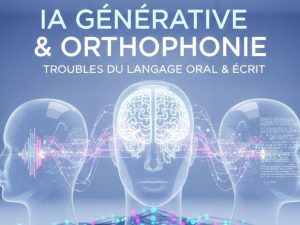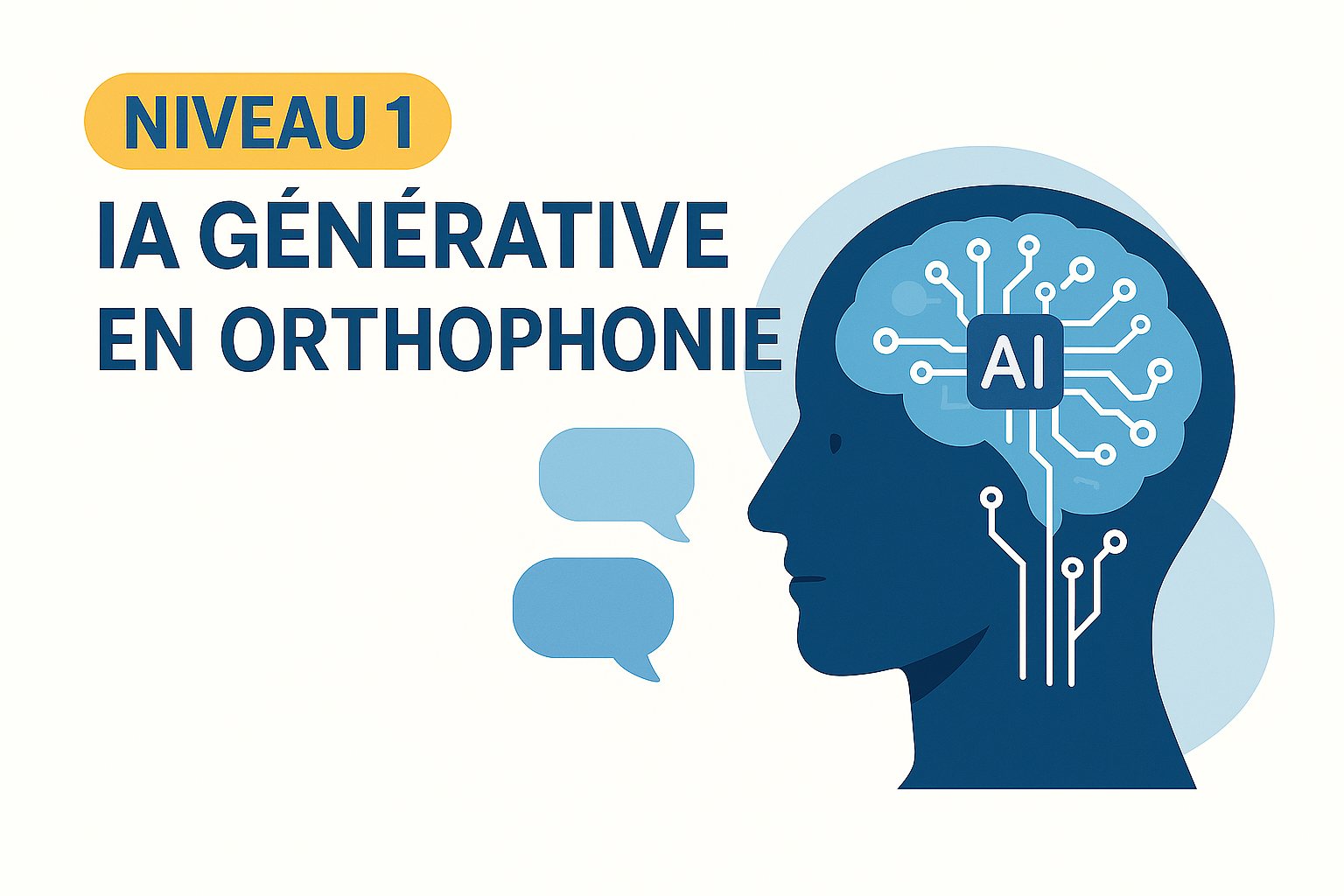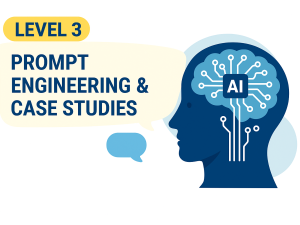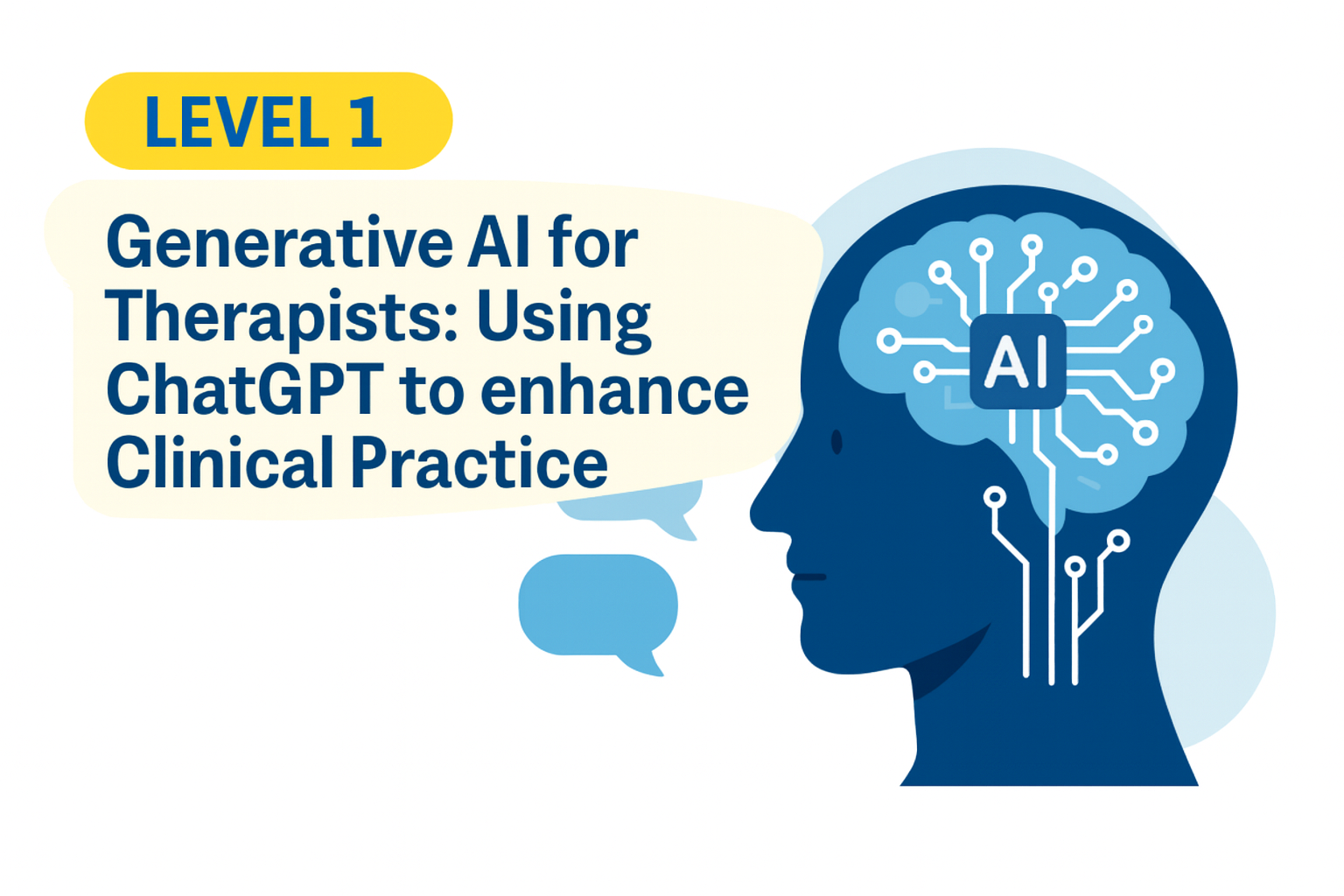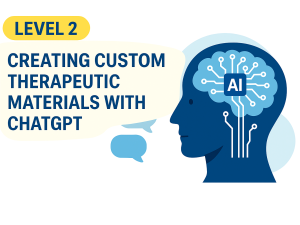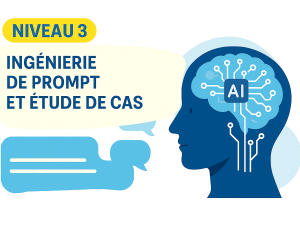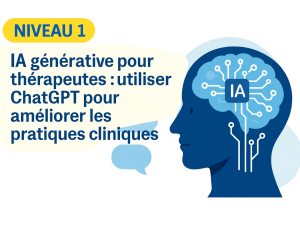Free Introductory Session: Generative AI Essentials for Therapists (English)
Instructor
Dr. Rania Kassir
- Description
- Curriculum
- Reviews
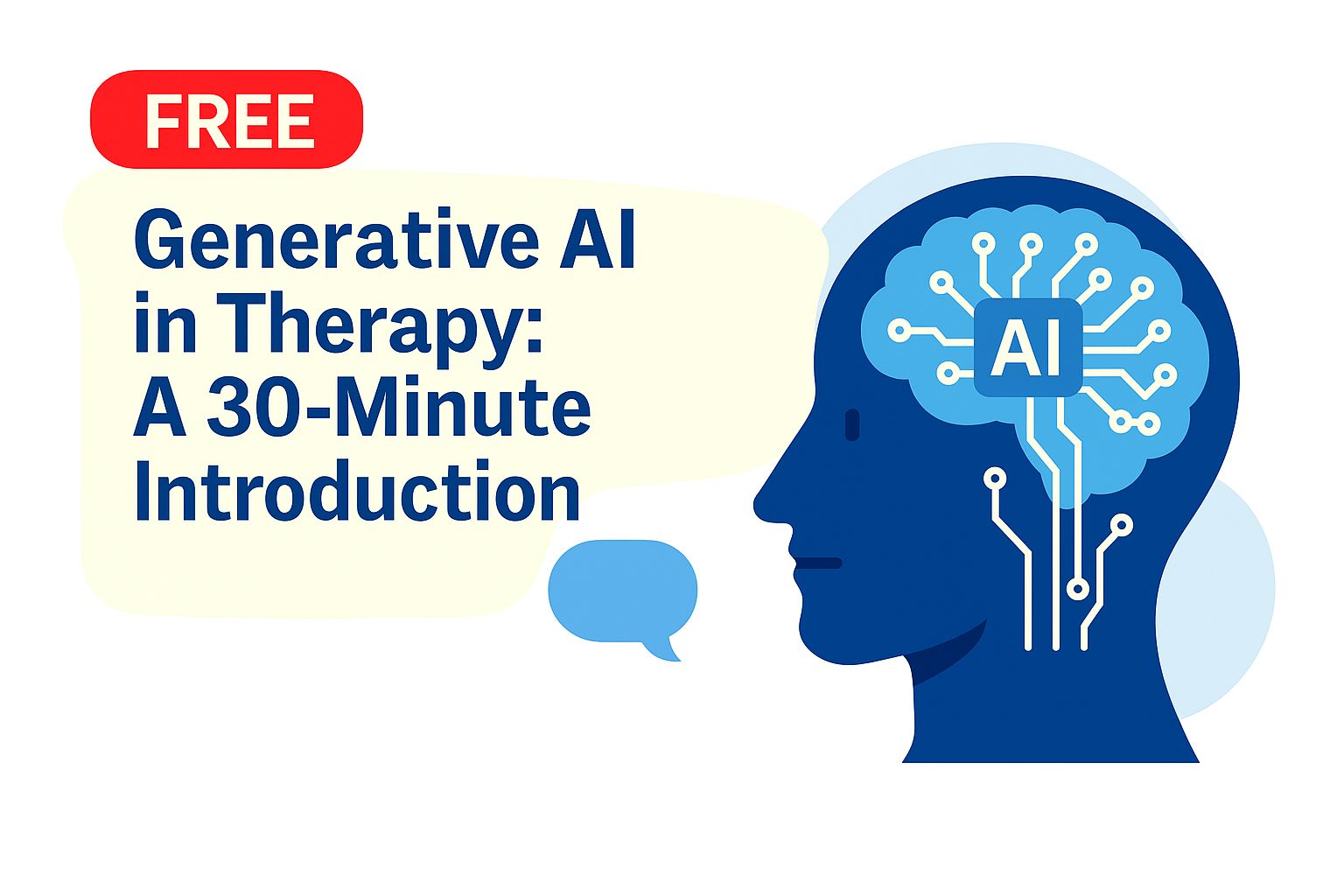
This free 30-minute session offers a clear and accessible introduction to generative AI: what it is, how it works, its potential for therapists, and its current limitations.
It is designed for professionals who want a simple, structured overview before exploring more advanced applications.
If you find this introduction helpful and would like to go further, the next step is our Level 1 – Generative AI for Therapists, a comprehensive certified training that teaches you how to integrate ChatGPT into assessment, report writing, goal-setting, and therapeutic planning.
Please, login to leave a review

